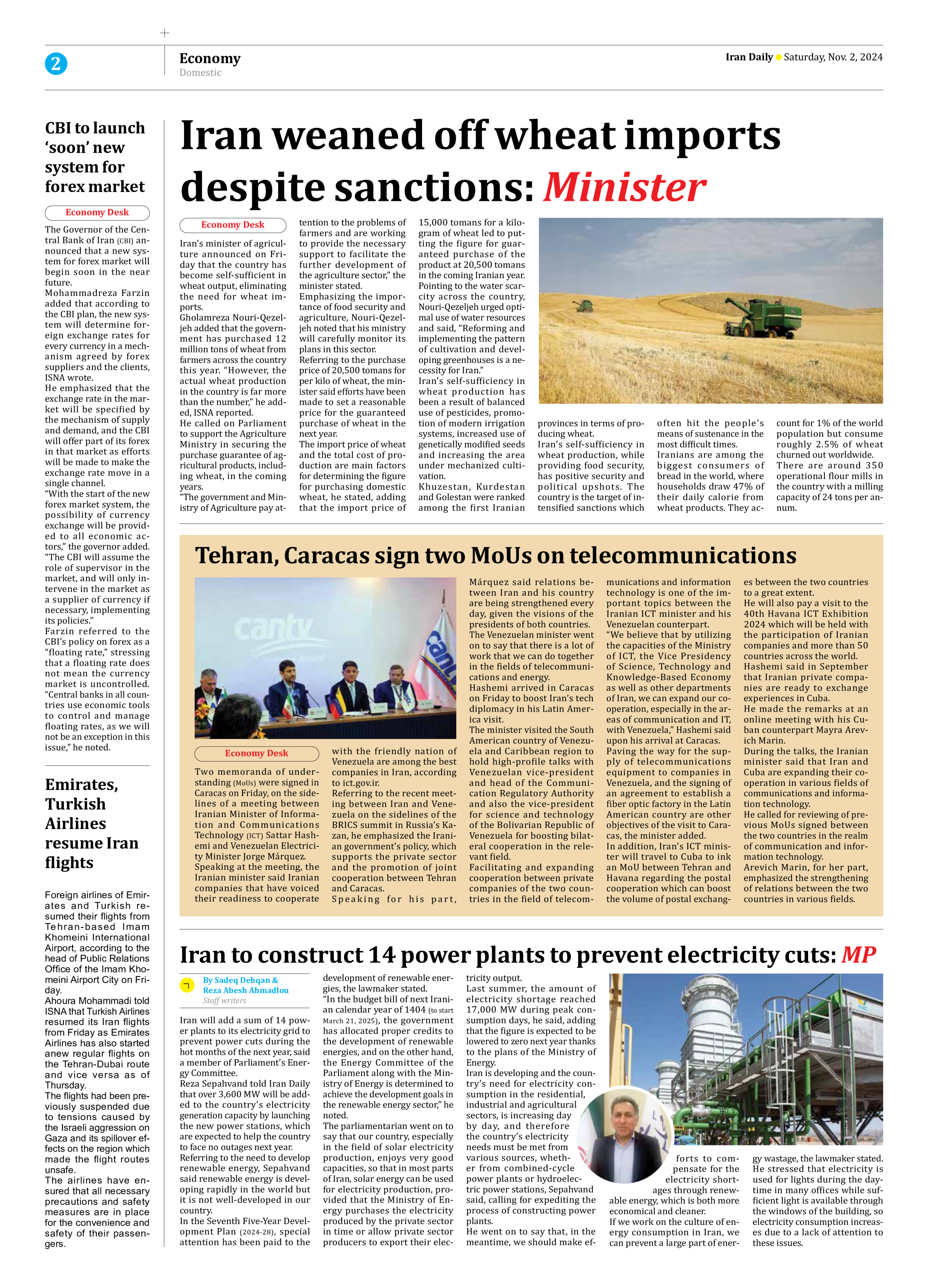
Iran weaned off wheat imports despite sanctions: Minister
Iran’s minister of agriculture announced on Friday that the country has become self-sufficient in wheat output, eliminating the need for wheat imports.
Gholamreza Nouri-Qezeljeh added that the government has purchased 12 million tons of wheat from farmers across the country this year. “However, the actual wheat production in the country is far more than the number,” he added, ISNA reported.
He called on Parliament to support the Agriculture Ministry in securing the purchase guarantee of agricultural products, including wheat, in the coming years.
“The government and Ministry of Agriculture pay attention to the problems of farmers and are working to provide the necessary support to facilitate the further development of the agriculture sector,” the minister stated.
Emphasizing the importance of food security and agriculture, Nouri-Qezeljeh noted that his ministry will carefully monitor its plans in this sector.
Referring to the purchase price of 20,500 tomans for per kilo of wheat, the minister said efforts have been made to set a reasonable price for the guaranteed purchase of wheat in the next year.
The import price of wheat and the total cost of production are main factors for determining the figure for purchasing domestic wheat, he stated, adding that the import price of 15,000 tomans for a kilogram of wheat led to putting the figure for guaranteed purchase of the product at 20,500 tomans in the coming Iranian year.
Pointing to the water scarcity across the country, Nouri-Qezeljeh urged optimal use of water resources and said, “Reforming and implementing the pattern of cultivation and developing greenhouses is a necessity for Iran.”
Iran’s self-sufficiency in wheat production has been a result of balanced use of pesticides, promotion of modern irrigation systems, increased use of genetically modified seeds and increasing the area under mechanized cultivation.
Khuzestan, Kurdestan and Golestan were ranked among the first Iranian provinces in terms of producing wheat.
Iran’s self-sufficiency in wheat production, while providing food security, has positive security and political upshots. The country is the target of intensified sanctions which often hit the people’s means of sustenance in the most difficult times.
Iranians are among the biggest consumers of bread in the world, where households draw 47% of their daily calorie from wheat products. They account for 1% of the world population but consume roughly 2.5% of wheat churned out worldwide.
There are around 350 operational flour mills in the country with a milling capacity of 24 tons per annum.







